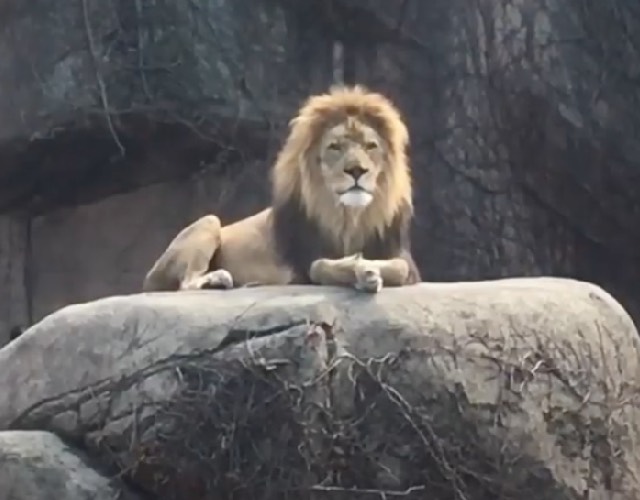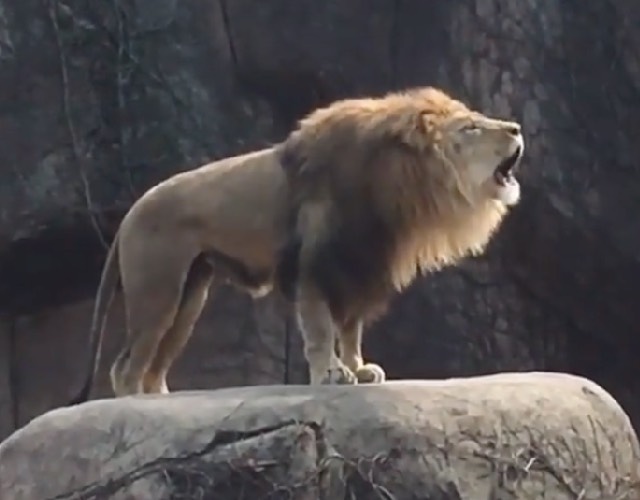Lincoln Park Zoo's Majestic Lion Roar Takes The Internet By Storm
The debate over zoos and the captivity of animals sparks passionate discussions worldwide

The debate over zoos and the captivity of animals sparks passionate discussions worldwide. Some argue that zoos provide valuable educational experiences and contribute to conservation efforts, while others believe that confining animals for human entertainment is unethical.
Lincoln Park Zoo in Chicago, Illinois, serves as a microcosm of this ongoing debate, offering insights into both sides of the argument. On one hand, zoos like Lincoln Park provide a unique opportunity for people to observe and learn about animals they might never encounter in the wild.
Visitors can witness the majesty of creatures like lions, elephants, and gorillas up close, fostering a sense of connection and appreciation for the natural world. Moreover, zoos play a crucial role in conservation by breeding endangered species and supporting research to protect their habitats.
However, critics argue that keeping animals in captivity deprives them of their freedom and natural behaviors. Concerns about animal welfare and ethical treatment loom large in discussions about zoos, with some questioning whether the benefits of captivity truly outweigh the costs.
Moreover, the commercialization of zoos, driven by the desire for profit and entertainment, raises ethical concerns about prioritizing financial gain over the well-being of animals. At Lincoln Park Zoo, efforts have been made to address these concerns and prioritize the welfare of the animals in their care.
Naturalistic habitats provide enrichment and stimulation for the animals, allowing them to exhibit more natural behaviors. Additionally, the zoo actively engages in conservation efforts, supporting initiatives to protect endangered species and their habitats.
One notable resident of Lincoln Park Zoo is a lion who was born in captivity and cannot be released into the wild. Formerly a circus lion, he was later abandoned and found a home at the zoo.
Despite his captive upbringing, he exhibits behaviors that suggest contentment and enjoyment in his environment. Regular visitors report seeing him roar from atop his rock, a display that captivates audiences and demonstrates the power and majesty of these magnificent creatures.
Visitors to Lincoln Park Zoo are often awestruck by the experience of witnessing the lion's roar in person. The sound reverberates through the air, creating a visceral connection to the animal and its natural habitat. Despite the debate surrounding zoos and animal captivity, moments like these remind us of the beauty and wonder of the natural world.
A circus-born lion was left behind.
 YouTube
YouTubeHe's fond of his new home and enjoys performing and he frequently roars on his rock throughout the day.
 YouTube
YouTubeThe lion is famed for its mighty roar and striking golden coat, particularly the impressive manes of the males, such as the one seen roaring here.
 YouTube
YouTube"Epic Lion Roar at Lincoln Park Zoo "
Lincoln Park Zoo is a reflection of the complex and nuanced debate surrounding zoos and animal captivity. While it offers valuable educational experiences and contributes to conservation efforts, questions about animal welfare and ethical treatment persist.
Ultimately, the impact of zoos on society depends on individual perspectives and the extent to which they prioritize the well-being of animals.

